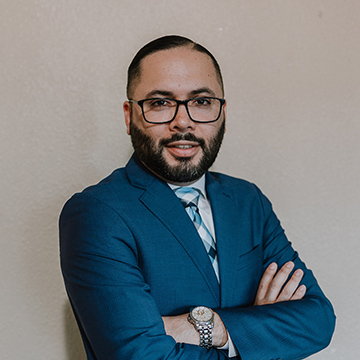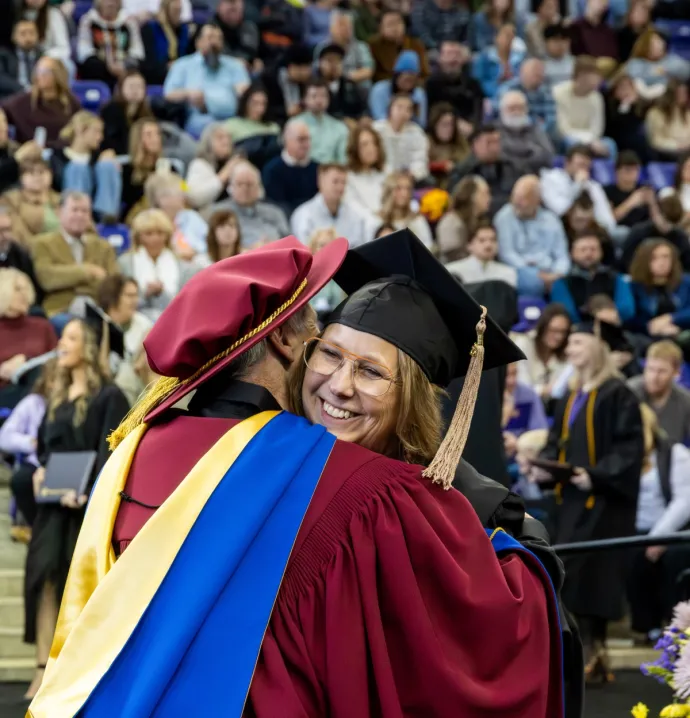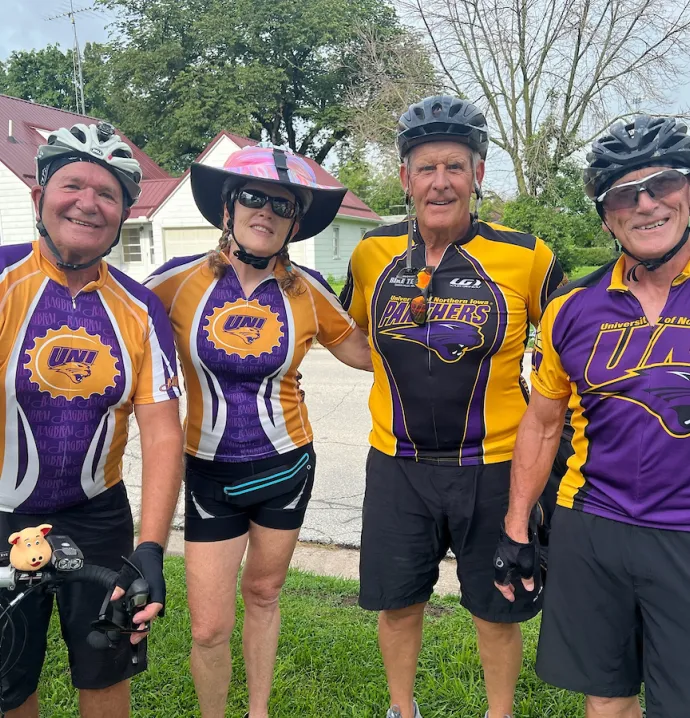UNI alum fighting for immigrant rights
UNI alum fighting for immigrant rights
Immigration lawyer Heliodoro “Helio” Moreno, Jr. — the first in his family to graduate high school and college — credits two of his UNI political science professors with playing key roles in his law-school entry and legal career.
His legal expertise has been especially crucial as the federal government has sought to restrict immigration. 
“I got a rude awakening,” said Moreno, the Senior Removal Defense Attorney of Stand Together Contra Costa, a program run by the Contra Costa County public defender’s office, who represents people threatened with deportation. “You can’t take anything for granted. You have to stand up for yourself. Once people get scapegoated and you don’t do anything, they’ll come after you. You have to be present and advocate for yourself and community members to make sure you are respected.”
Indeed, Moreno’s journey to UNI deviated in several key ways from the typical high-school kids.
He learned of UNI from his then-commanding officer, a captain in the U.S. Marine Corps, who was taking classes part-time at the university. Moreno was stationed at an artillery unit in Waterloo, Iowa, after he followed his younger brother’s footsteps by joining the Marine Corps.
“I wanted to get a college education,” said Moreno, 39, who grew up in the Bay Area city of Pittsburg, California. In fact, he already had his eye on law school, too.
Yet he conceded that he initially wondered how welcoming the Midwest would be to a native Californian whose parents immigrated from Mexico. His father ran a lawn-care service and his mother held a series of minimum-wage jobs working in a factory, a cleaner at a laundromat and a shelf-stacker at Walmart.
“A Latino kid from California going to the Midwest, I was like OMG,” he said.
Moreno was not only pleasantly surprised by how welcomed he felt, but how well he was prepared for law school.
UNI, where he earned a bachelor’s degree in political science in May 2007, laid the groundwork for his understanding of the Socratic method and other legal insights that serve him so well today.
The two professors who had the greatest impact were Scott Peters, who taught pre-law using the Socratic Method, which Moreno said eased his transition into law school, and Vaughn Shannon, who served as a father/big brother figure by always being available to listen.
“My first year of law school was so easy,” Moreno said of Peters’ tutelage. “I thank him all the time.”
Peters, now head of the political science department, said he isn’t surprised by Moreno’s success, especially since Moreno had already served in the U.S. Marines and “was always super prepared and involved in class.”
“He was a great student — eager to learn, hardworking and very bright,” Peters said. “Everyone in the department is proud of Helio. We’re very cognizant of the fact that we’re preparing people who might do a lot of different things. Whatever they do, we want them to be engaged and responsible citizens.”
Moreno earned his law degree from California Western School of Law in San Diego.
Moreno had enlisted in the Marines after the 9/11 terrorist attack and was called back to service after his first year of law school. He served as a member of the Judge Advocate General (JAG) in Iraq and Afghanistan. As a Legal Services Specialist, Moreno edited a legal newsletter and helped defend and prosecute Marines in court martials. He also helped prepare Marines’ passport applications at the Al Assad Air Base. In Afghanistan, he was attached to a helicopter unit at Kandahar Air Field.
Moreno’s rise up the ranks reflected his interest in the law and politics that started when he was in high school. He participated in debating, public speaking, moot court and Model United Nations. He also got involved in Future Leaders of America, East Bay Area, a local youth leadership development program where he’s now president of the board of directors back in his hometown.
The Future Leaders program helped Moreno hone his public speaking, essay writing and parliamentary procedural skills.
“I gained a lot of confidence,” he said. “It helped me believe, ‘This is what I want to be involved in.’”
Besides helping lead the program for future generations, Moreno, who is now married and the father of three girls ages 14, 10 and 7, and a baby boy, is active in his community and in his daughters’ school district.
The school district — the same one Moreno attended — represents a predominantly Latinx population in a city that was started by Italian immigrants. He’s now working to ensure that students from all backgrounds get the best education and that people from all walks of life get a say in the city’s governance.
It’s the same urgency with which Moreno approaches the difficult, emotional and gut-wrenching immigration system that even circuit court judges have called a Labyrinth.
“It’s just pushing through and fighting,” Moreno said. “I want to be that wrench in the deportation machine, to make sure people are assured their due process rights.”
One of his most memorable wins was for a police officer who had been threatened and attacked in his native country by a drug cartel who were in cahoots with his superiors.
“I helped him and his family gain asylum last February,” he said. “Seeing their relief and their gratitude make it worth it.”




